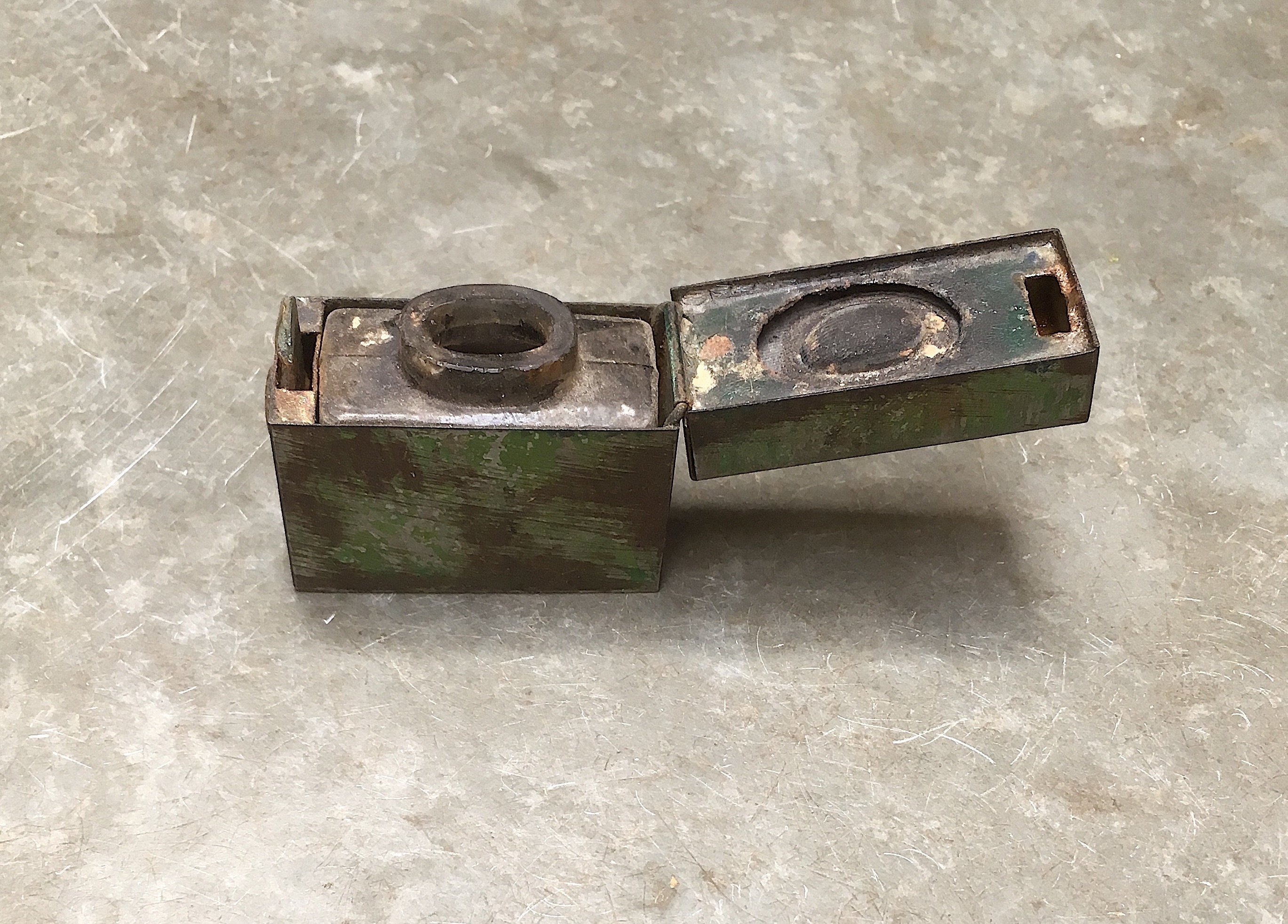
One night from the bureau you took
a small metallic object, placed it, green
in the light of the standard lamp.
Strangely it sat on the dining-table
like an oversize matchbox made of steel.
Slowly you hinged back the armoured lid.
As if you opened a casket of sealed time
into the dark room came the Western Front
all that nightmare of what men did
When old Germany, the most civilized, died
when fairs on English Downs were pulled up
and trenches filled the French countryside
When Sacre prophesied the Great War
its dissonance the anger of the guns
its Chosen One a generation damned.
Out of that bombproof inkwell came poems
against the heroic values: Nie Wieder Krieg.
And for a faraway young bride
From black depths came love-letters penned
as dolphins turned, phosphorescent
in Flanders, at the mouth of the Yser.
‘My most precious possession’ you said
’yours now, since you’re a poet too.’
So came to me an armoured inkwell.
‘I shall not cease from mental fight.’
Often we chanted Blake’s mighty hymn
and I repeat it still by candlelight.


Ancient copper ink runs deep red , drawn from the sound of Aidan’s inspired words
You’re right, our grandfathers’ handwriting would have been ‘copperplate’, in this case, as you say, dipped in the heart’s blood. Good to have your response, Genie.
A very moving poem , at once universal and intimate. It brings home the fragility of love and life amidst the industrial slaughter of the first world war . The loving bond between the poet and his grandmother , Rambert , and the incantation of Blake’s exalted prayer are their defence against inhuman powers of destruction.
Thank you for your heartfelt response to An Armoured Inkwell, Amabel, I’m so glad you felt these lines.
An irony: my grandmother did not like the music of ‘mental fight’. She found Blake’s wording ugly; and would insist time and again that it was so. And I still have to agree with her. After all, Eliot has written disparagingly of Blake’s poetics, calling his language unwieldy and inelegant as ‘homemade furniture’ or words to that effect. And yet we largely see Eliot eclipsed by Blake today. Eliot certainly never understood the psychological architecture of Blake’s larger ‘prophetic’ works; while Yeats most certainly did. And this understanding and feeling for the naivety and profundity of Blake’s genius helps to make Yeats a greater poet than Eliot.
Yes, Blake does sometimes have an issue with lyrical quality-control but his conceptions are so much larger than anyone else’s that we don’t care when he drops a leaden line.
‘Mental fight’ is a Christlike formula. Blake as antinomian visionary is such a vast subject.
All I really intended to note here was that I went through a little spiritual skirmish myself when it came to including Blake’s famous phrase in a poem remembering Rambert and Dukes. I could clearly hear Mim saying, for the fiftieth time: “O, that line stinks!” By including it (how could I not?) perhaps somewhere in the back of my mind I was testing my poem against her finely-attuned literary sensibilities; and simultaneously having a little joke with a woman who greatly, greatly influenced me as a poet.